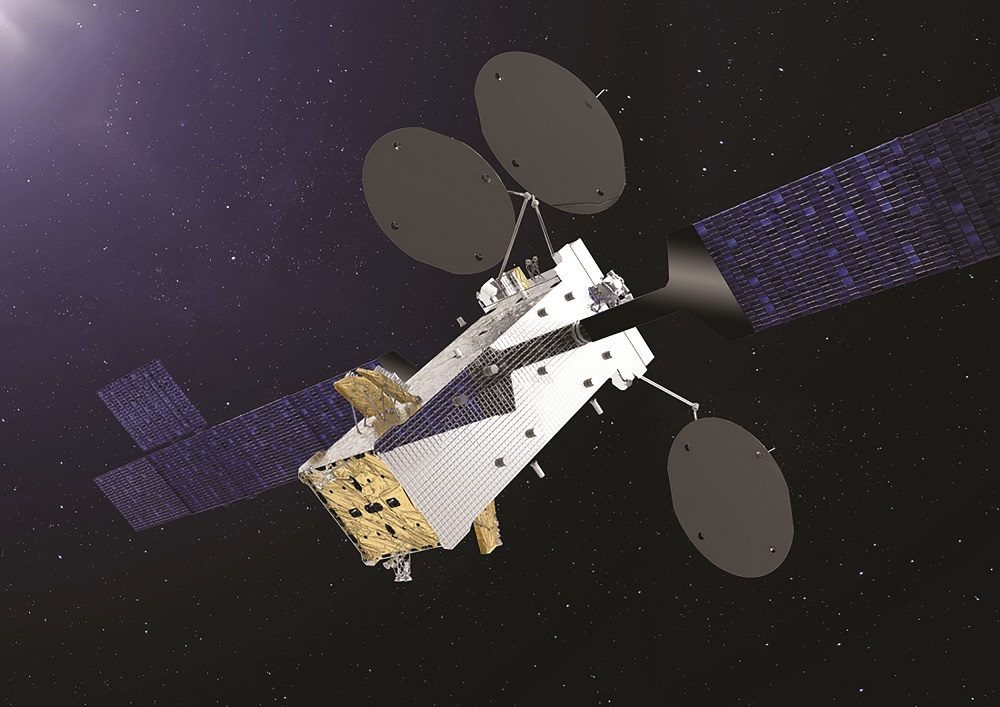TAMPA, Fla. — Indonesia has ordered a high-throughput communications satellite from Thales Alenia Space for a 2024 delivery to fill a gap left by last year’s loss of Nusantara-2 to a Chinese launch failure.
The satellite, dubbed HTS 113BT, will be operated in geostationary orbit by Telkomsat, a subsidiary of Indonesian state-owned telecoms operator Telkom that ran an open tender for the contract.
Based on Thales Alenia Space’s Spacebus 4000B2 platform, HTS 113BT will weigh about 4,000 kilograms at launch, designed to provide more than 32 gigabits per second (Gbps) of capacity over Indonesia with C-band and Ku-band beams.
The satellite aims to improve connectivity for the thousands of islands across the Indonesian archipelago from the 113 East orbital slot above the country.
“The [HTS 113BT] satellite will help strengthen the capacity, quality, and capability of digital connectivity in Indonesia, especially in areas that are not yet reached and lack terrestrial networks,” Telkomsat President Director Endi Fitri Herlianto said in a statement.
“Hopefully this step can support the realization of Indonesia’s digital sovereignty.”
Telkom-3S, the last satellite Thales Alenia Space built for Telkomsat, was also based on the Spacebus 4000B2 platform and was launched in 2017.
Need for speed
Despite the growing popularity of all-electric, software-defined satellites among GEO operators, Indonesia’s government opted for speed-to-orbit by choosing Spacebus 4000B2.
“This platform has the advantage of being chemically propelled, allowing the satellite to be put into orbit in a few days, as opposed to several months for more recent electrically propelled satellites,” a Thales Alenia Spaceofficial said via email.
“It was a requirement of the customer who had a constraint on the date of commissioning following the launch failure of the satellite that HBT 113 BT is replacing.”
That satellite is Nusantara-2, formerly Palapa-N1, which was destroyed when a Chinese Long March 3B rocket failed April 9, 2020.
China Great Wall Industry Corp. built Nusantara-2 for an Indonesian joint venture between telco Indosat Ooredoo and Pasifik Satelit Nusantara (PSN), a private-sector satellite operator.
The Indonesian government owns about 14% of Indosat Ooredoo, which is majority-owned by Qatari multinational telecoms company Ooredoo.
String of failures
Nusantara-2 is part of a series of setbacks for Indonesian satellite operators.
The Telkom-3S satellite that Thales Alenia Space made for Telkomsat was ordered to replace Telkom-3, built by ISS Reshetnev, which was lost in an August 2012 failure of Russia’s Proton rocket.
In August 2017, Telkomsat’s aging Telkom-1 satellite, built by Lockheed Martin, exploded in orbit after experiencing an antenna failure.
Meanwhile, PSN’s Maxar-built Nusantara-1 satellite, also known as PSN-6, is reportedly suffering a power anomaly after being launched in 2019. Maxar was unable to comment before this article was published.
The private Indonesian operator has another satellite on order called SATRIA, which Thales Alenia Space is building for a launch in the first semester of 2023.
As well as being prime contractor for Telkomsat’s HTS 113BT, including its ground control segment, Thales Alenia Space will handle the satellite’s early orbital positioning phase, in-orbit tests, and provide in-orbit support throughout its expected 15-year lifetime.
Thales Alenia Space also built Indosat Ooredoo’s Palapa D satellite, which launched in 2009 and was supposed to be replaced by Nusantara-2.
